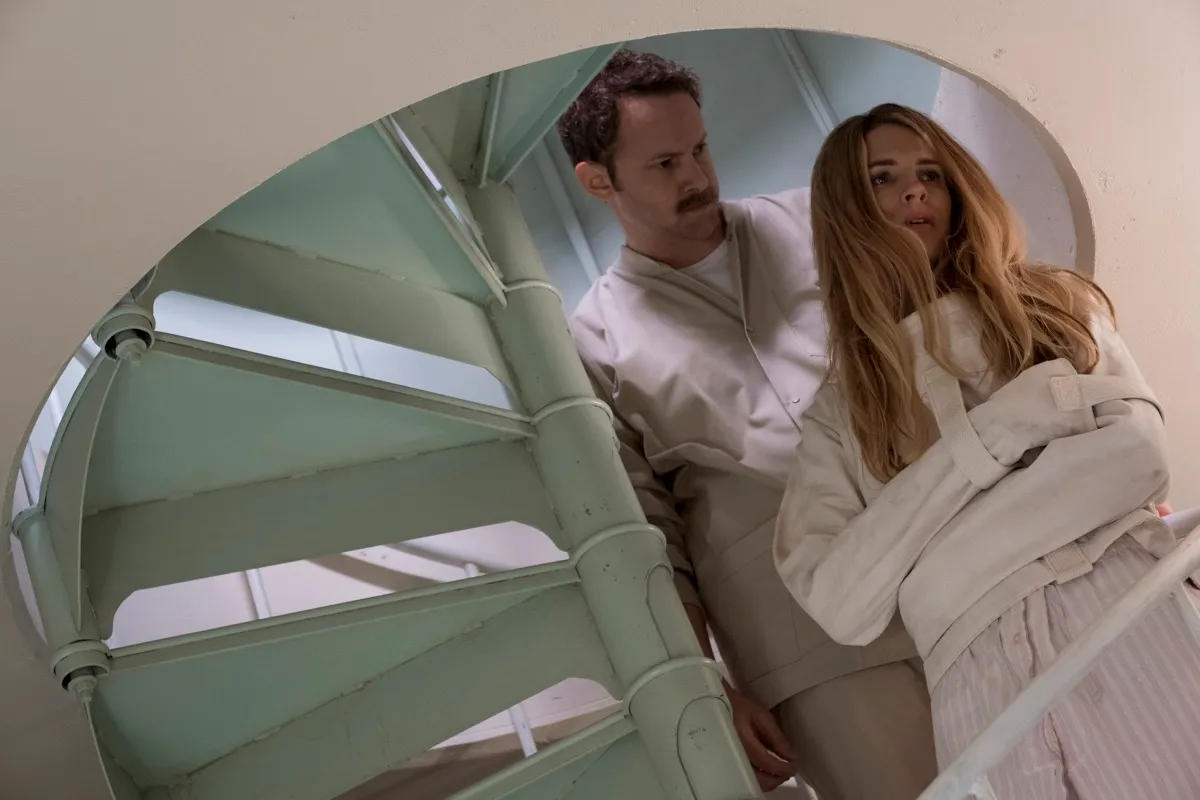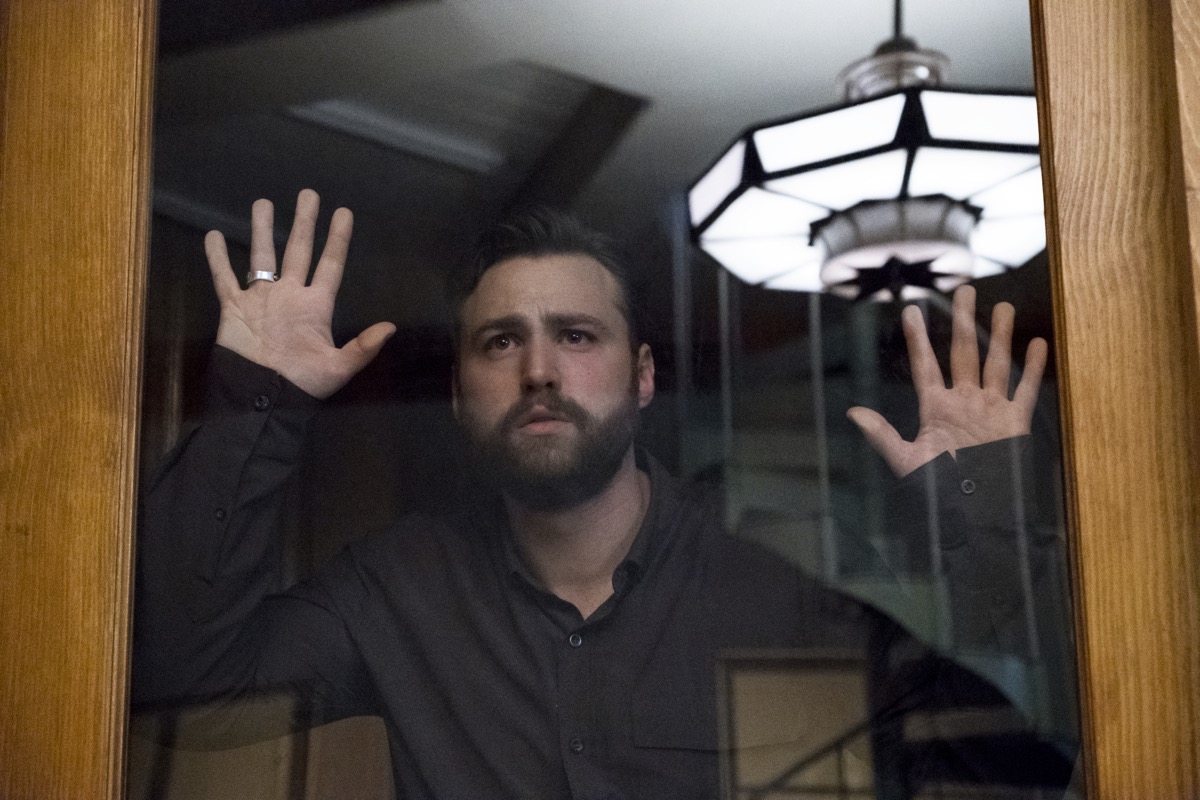**Warning: Major spoilers ahead for both seasons of The OA!**
After the first season of The OA, the original Netflix series from co-creators Brit Marling and Zal Batmanglij, viewers waited more than two years to have our burning questions answered: Was OA (an abbreviation for Original Angel), the titular character portrayed by Marling, accurately recounting her experiences in captivity and the metaphysical knowledge she acquired? Would she successfully travel to another dimension after being shot?
And, perhaps most pressing of all, would she finally be reunited with Homer, as she so desperately hoped?
First, the good news: Not only was everything about OA’s Part I flashback storyline the real deal, but Part II was absolutely worth the wait. This new season doubles down on the fearlessly bizarre twists and world-building that make the show so captivating. In my view, it also surpasses the first season in terms of gripping—and truly unpredictable—storytelling.
By and large, it’s what fans were hoping for.
Deliciously strange scenes (Psychic octopus! Tree internet! Dancing robots!) and new mysteries (Who is OA’s “brother?” Why was the puzzle house “calling” Karim via other people’s dreams? What’s even going on with Elias, the FBI trauma counselor?) abound, and at the center of it all is genuine human connection. Like in the first season, the show’s most avant-garde moments are anchored down by the personal relationships—old and new—at the heart of the story. The result is a series that, for all its unabashed weirdness, never feels empty or lacking in substance.
Central to the narrative is OA’s ongoing personal journey, and her bond with Homer is a big part of what drives her. That’s why it really, really stings that their fleeting reunion only comes at the tail end of the Part II finale, before they’re torn apart, yet again. After such a long wait and so much buildup to these two characters reuniting, fans are now still waiting to see them enjoy even one happy moment together. That’s a disappointing misstep in such a strong second season.
But let’s back up.
Previously, in Part I, OA returned to her small Michigan hometown (known there as Prairie Johnson), after disappearing seven years earlier. Gathering in secret with a small group of locals, she shared her memories of captivity, multiple near-death experiences, and the four other captives who became her found family.
In the course of her story, she also revealed a set of movements that would open a gate to another dimension—where she believed her fellow captives had already traveled. OA’s ultimate goal was to follow them, and in particular, to locate Homer Roberts (Emory Cohen), the young man who was held in the cell neighboring her own, whom she befriended and eventually fell in love with.
Marling’s breathtaking performance as OA, combined with the character’s triumphant kindness and unbreakable spirit, make it nearly impossible to watch this show without rooting for a happy ending—of some sort—for her. And by OA’s own definition, happiness would have to include Homer. Throughout Part I, flashbacks show that the two had sweet chemistry even in dire circumstances, each acting as the other’s support system in their low moments. (To paraphrase Rihanna, they found love in a hopeless place!)
Early on in Part II, OA does find herself face to face with a version of Homer, only to discover that he’s the lone dimension-traveler from their shared group who has no apparent memory of his previous life. Instead, he’s now known as Dr. Roberts, a psychiatrist who regards OA (known by her Russian birth-name Nina Azarova in the new dimension) as a delusional patient in need of his help—and her insistence that the Homer she knows is still intact, deep down, only reinforces his concerns.
As frustrating as this development is, both for OA and viewers, I do think it fits Homer’s journey. In both seasons, characters mention that traveling between dimensions requires will—or a firm decision to do so—but when captor/villain Dr. Hunter “Hap” Percy (Jason Isaacs) forced the group, sans-OA, to perform the movements in a field and jump with him, Homer had every reason to believe he would be leaving OA behind forever.
It stands to reason that he traveled more passively than the others, not completely losing his will, but merely accepting his fate as marginally better than dying. The result is that Homer’s consciousness did not “take over” Dr. Roberts’ body in the way OA and the other travelers “replaced” their alternate-dimension selves.
I have no idea why anyone says this show is confusing!
OA is right, of course, that her Homer is still there. After all, she was able to follow the group through the same “forked path” to that specific new dimension by focussing her thoughts on him, and although Dr. Roberts begins to recall tiny flashes of Homer’s memories, it’s not until the Part II finale that everything falls into place for him.
Just to tally, that means we’ve now had two seasons watching OA refuse to give up on getting Homer back—leading to a painfully brief reunion where Homer finally approaches OA as himself only to be shot in the back by Hap. OA catches Homer, easing him to the ground, giving the two roughly a minute—a single minute!—together before he loses consciousness.
In fatally wounding Homer, Hap seals their fate and plunges all three of them into a shocking new dimension of his choosing: one where their shared memories are now the plot of a fictional TV show, and wherein he hopes OA will perceive her past experiences as make-believe and accept her new persona as his costar … and wife (big yikes). This is the biggest win for Hap thus far, given his obsession with OA and bitter envy over her devotion to Homer.
To be clear, I’m not criticizing the masterful writing of the Part II finale itself; “Overview” is a jaw-dropping episode of television, and the moment Homer finally regains his memories, while trapped behind a pane of glass (evoking flashbacks of his glass-walled cell in his previous life), is simply brilliant. But the brief, interrupted reunion that follows falls far short of the meaningful, satisfying—even if ultimately temporary—reconnection these characters deserved.
We all waited long enough, damn it, including OA and Homer!
As excited as I am to (hopefully) see this wild story continue, it’s pretty clear that few Netflix series are safe when it comes to renewals—including those with a passionate fanbase. The pivotal payoff for OA and Homer after their harrowing journeys is important enough that it should not have been left hanging in the balance.
Plus, even if a third season is likely, we know there will be another long wait while it’s written and filmed—a little taste of happy romance would have been a nice way to tide viewers over. And, hey, if we had to exchange watching Dr. Roberts’ awkward date or unsettling skin-buying dream (a new level of WTF even for this show), for a longer “Homer returns” portion of the season, all the better!
Given the last lines the two speak to each other, with OA warning Homer that she may forget herself in the next dimension and his promise to follow her, it seems likely that Part III will see Homer tracking down OA for a change. I have to admit that I can see the beautiful symmetry in that continuation of their story: Torn apart over and over, two people, made stronger by their love for each other, are determined to do whatever it takes to find and rescue the other. Even in the face of impossible circumstances and increasingly strange discoveries about the nature of reality, love is worth fighting for.
If Part II is any indication, I’m confident that future installments (hopefully the full five-season arc the creators planned) of this story will be well worth the wait. Let’s just hope that the moment OA remembers her true self—as she was able to glimpse thanks to giant octopus buddy Old Night (RIP)—doesn’t come in the final minutes of next season’s finale. Please.
What did you think of The OA Part II?
(images: Nicola Goode/Netflix)
Want more stories like this? Become a subscriber and support the site!
—The Mary Sue has a strict comment policy that forbids, but is not limited to, personal insults toward anyone, hate speech, and trolling.—










Published: Apr 4, 2019 10:17 am